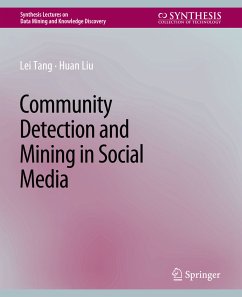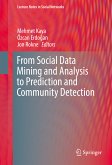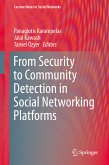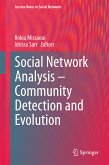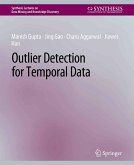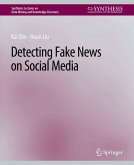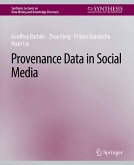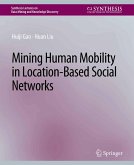The past decade has witnessed the emergence of participatory Web and social media, bringing people together in many creative ways. Millions of users are playing, tagging, working, and socializing online, demonstrating new forms of collaboration, communication, and intelligence that were hardly imaginable just a short time ago. Social media also helps reshape business models, sway opinions and emotions, and opens up numerous possibilities to study human interaction and collective behavior in an unparalleled scale. This lecture, from a data mining perspective, introduces characteristics of social media, reviews representative tasks of computing with social media, and illustrates associated challenges. It introduces basic concepts, presents state-of-the-art algorithms with easy-to-understand examples, and recommends effective evaluation methods. In particular, we discuss graph-based community detection techniques and many important extensions that handle dynamic, heterogeneous networks in social media. We also demonstrate how discovered patterns of communities can be used for social media mining. The concepts, algorithms, and methods presented in this lecture can help harness the power of social media and support building socially-intelligent systems. This book is an accessible introduction to the study of \emph{community detection and mining in social media}. It is an essential reading for students, researchers, and practitioners in disciplines and applications where social media is a key source of data that piques our curiosity to understand, manage, innovate, and excel. This book is supported by additional materials, including lecture slides, the complete set of figures, key references, some toy data sets used in the book, and the source code of representative algorithms. The readers are encouraged to visit the book website for the latest information. Table of Contents: Social Media and Social Computing / Nodes, Ties, and Influence / Community Detection and Evaluation / Communities in Heterogeneous Networks / Social Media Mining
Dieser Download kann aus rechtlichen Gründen nur mit Rechnungsadresse in A, B, BG, CY, CZ, D, DK, EW, E, FIN, F, GR, HR, H, IRL, I, LT, L, LR, M, NL, PL, P, R, S, SLO, SK ausgeliefert werden.
Hinweis: Dieser Artikel kann nur an eine deutsche Lieferadresse ausgeliefert werden.

